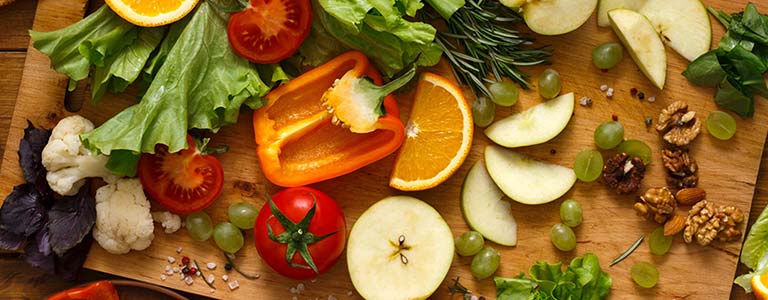Weight Loss With Plants Episode 2 – Kelly Houseman
Tune in to see how committing to a WFPB lifestyle change affected Kelly’s weight loss and the management of her metastatic breast cancer.

Weight Loss With Plants Episode 2 – Kelly Houseman
Tune in to see how committing to a WFPB lifestyle change affected Kelly’s weight loss and the management of her metastatic breast cancer.
Weight Loss & Cancer Management: How Whole Food, Plant-Based Support Helped Kelly
After years of on-and-off whole food, plant-based eating, Kelly fully committed to the WFPB lifestyle change and found great success in weight loss and managing her metastatic breast cancer.
Top 10 Plant-Based News Stories and Articles of 2020
Health was certainly at the forefront of the news in 2020, and health happens to be our forte. Here we share our best articles of 2020.
Study Finds Dairy (Not Soy) Skyrockets Breast Cancer Risk
If you could reduce your relative risk of breast cancer by 80 percent, wouldn’t you do it? A new study claims that women who drink cows’ milk could increase their risk of developing breast cancer by up to 80 percent compared to women who drink soy milk.
Can the Ketogenic Diet Cure Cancer? What Does the Science Say?
The ketogenic diet does not offer the benefits that fasting and plant-based diets provide for cancer patients, in terms of reducing the side-effects of medical treatment and enhancing its effectiveness. But does the keto diet help fight cancer?
Soy Myths vs Facts: Is Soy Healthy or Not?
Is soy dangerous or beneficial? Many people are still uncertain whether this plant-based protein has benefits or is a threat to long-term health. The confusion has given rise to numerous conflicting reports about how soy affects the body.
Is Raw Milk Better for You? What About Goat Milk?
Is it okay to drink raw milk? Is unpasteurized milk better? Learn the science behind why raw milk and goat milk are not necessarily healthier choices.
Food or Medicine? Preventing & Treating Breast & Prostate Cancer
Why turn to surgery, chemotherapy, and radiation to fight cancer when food is cancer’s enemy? Shouldn’t we implement diet and lifestyle changes along with medical interventions when facing cancer?
Too Many Cancer Promises & Too Much Professional Arrogance?
When Science and related cancer journals ignore the sciences of diet and nutrition in the cause and possible treatment of cancer we all lose.
Can Asparagus Cause Cancer or Can it Help Prevent Cancer?
A compound in asparagus and some other foods, called asparagine, was linked to breast cancer. Before we cut asparagus from out diet, consider these points regarding the study.
Drs. Thomas and Erin Campbell will use donation to research impact of nutrition on patients with serious diseases, including advanced breast cancer.
A Mother’s Story About Dairy and Breast Cancer
I followed the motherhood guidelines, drank all the recommended milk and now know that dairy does not belong in our diet.
Alcohol: 16 Reasons to Rethink Your Drink
Light, moderate or high risk drinking? Research indicates there may be hazards associated with increased levels of alcohol consumption.
Should I Be Tested? Ask These 4 Questions First
Tom Campbell, MD presents some very important points, not often discussed by medical professionals, which could save you time, money and unnecessary grief.
Patty’s Plant-Based Health Story
I was diagnosed with breast cancer two weeks after my 41st birthday almost 3 years ago.
The China Study and Breast Cancer, Campbell’s Office Hours Webinar
The following video is a highlight from our October 2014 Campbell’s Office Hours Webinar provided for current and past students.
Intervention Trials, Campbell’s Office Hours Webinar
The following video is a highlight from our October 2014 Campbell’s Office Hours Webinar provided for current and past students.
Oversaturation of Fat in the Media
We have known for decades that fatty foods are anything but good for you, but recent media reports glorifying saturated have caused confusion. Do not be fooled. There is nothing healthful about butter, bacon, cheese, or steak. Saturated fat poses numerous severe health risks of which everyone should be aware. This recent confusion over saturated fat may be a result of people trying to blame carbs for the nation’s weight problems—even though the country’s grain intake is actually far lower than what it once was.
Breast Cancer, Cholesterol, and Reductionism
According to a journalist for the prestigious journal Science (November 29, 2013), “Cholesterol....when metabolized by the body...turns into a potent estrogen-like molecule that spurs the growth of breast cancer in mice, and perhaps in people.
Diet Matters: Clarifying the Link between Breast Cancer and Eating Patterns
It was June 1982. At a news conference in Washington, DC, a group of internationally recognized scientists had just finished announcing the National Research Council’s report on diet, nutrition, and cancer.[1] The report received extensive news coverage, criticism from the industry most affected by the report’s conclusion, and according to some authorities, the highest number … Continued
Letter to the Editor: Journal of the American Medical Association
Holmes et al, using data from the Nurses' Health Study, report no significant association between breast cancer risk and type of dietary fat consumed, a finding mostly (but not entirely) consistent with earlier reports on this important study.
What Does Research Indicate About Animal Protein and ‘Reproductive’ Cancers?
Answer to a Reader's Question:
Dietary Fat is Only Partly Where It’s At
The breast cancer/dietary fat relationship, once a key point in getting American women to switch their eating habits, has now been seriously challenged. A prominent Harvard study of nearly 90,000 American nurses,
I receive many newspaper clippings on nutrition, sent by friends and colleagues, and coming from many parts of the world.